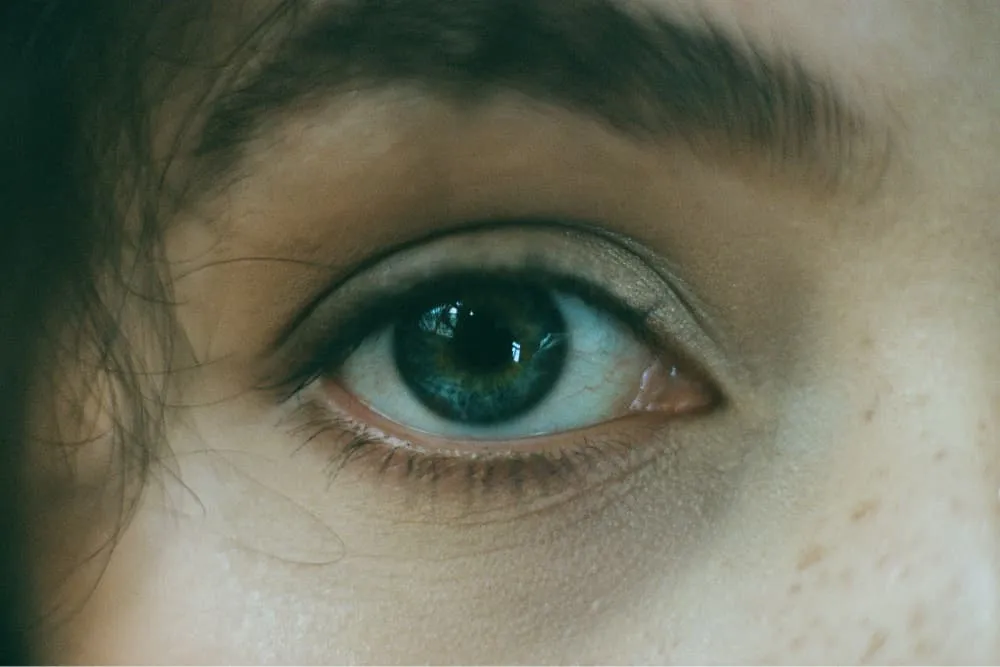What is Prader-Willi syndrome?
Usually diagnosed shortly after birth, Prader Willi syndrome is a rare genetic condition that causes a number of physical symptoms, behavioral challenges, and learning difficulties. (1)
The genetic abnormality that causes Prader-Willi syndrome happens by chance. Therefore it can affect boys and girls of all ethnicities.
A classic sign of Prader-Willi syndrome is a constant feeling of hunger, starting at around two years of age. This constant craving for food leads to eating often and consuming large portions, which can result in rapid weight gain.
Diagnosing Prader-Willi yndrome
A checklist of diagnostic criteria for Prader-Willi syndrome can determine if genetic testing is needed to confirm the diagnosis: (2,3)
- Children under 3 years: Must have at least 4 major and one minor criteria for a Prader-Willi diagnosis.
- Children 3+ years: Must have at least 5 major and 3 minor criteria for a Prader-Willi diagnosis.
Major criteria
- Floppiness and weak muscles
- Suckling difficulties
- Feeding problems and/or failure to grow
- Rapid weight gain through ages 1-6 years
- Characteristic facial features, including narrow forehead and thin upper lips
- Delayed genital and sexual development
- Delayed physical development or learning difficulties
Minor criteria
- Reduced movement in the womb and unusual lack of energy after birth
- Sleep disturbances
- Delayed or absent puberty
- Unusually light skin, hair, and eyes
- Short stature
- Narrow hands
- Thick saliva
- Long-sightedness or a squint
- Problems pronouncing words and sounds
- Frequent picking of the skin
Genetic testing to confirm a Prader-Willi diagnosis will check for an abnormality within a specific area of chromosome 15. Early diagnosis is key for early intervention and treatment for symptoms.
Signs and symptoms of Prader-Willi syndrome
In infancy, Prader-Willi syndrome is characterized by growth and developmental delays, weak muscle tone, and feeding difficulties. In early childhood, those affected develop an extreme appetite, which results in overeating and weight gain. Other signs and symptoms of Prader-Willi syndrome include: (4,5)
- Delayed or incomplete puberty
- Poor sucking reflex
- Unusually fair skin
- Sleep abnormalities
- Mild to moderate intellectual disabilities
- Underdeveloped genitals
- Strabismus, a condition where both eyes don’t line up in the same direction
- Short stature
- Skin picking
- Scoliosis
- Speech problems
- Small hands and feet
- Distinctive facial features like almond-shaped eyes, narrow forehead, and triangular mouth.
- Unusual food-seeking behaviors, such as hoarding food, eating frozen food, or eating garbage
- High pain tolerance
Children with Prader-Willi syndrome may also exhibit behavioral issues, such as obsessive-compulsive tendencies, stubbornness, and temper tantrums, especially when denied food.
Effects of Prader-Willi syndrome
Key features of Prader-Willi syndrome are a constant feeling of hunger and an absence of feeling full. Those with the condition tend to eat constantly, which can lead to weight fluctuation. (4)
The genetic disorder is also linked to varied developmental delays, learning difficulties, and behavioral issues.
Short-term effects
The short-term effects of Prader-Willi syndrome are primarily related to overeating on a regular basis, they include: (5,6)
- Food poisoning
- Stomach pain
- Fatigue
- Constipation
- Swollen stomach
- Choking
- Open sores and infection from skin picking
Long-term effects
While Prader-Willi syndrome can affect a person’s daily life, it’s not usually life-threatening.
Individuals with Prader-Willi syndrome can tolerate far larger amounts of food than those without the condition before their body automatically induces vomiting. Because they are not sensitive to pain, they are at a higher risk of a stomach rupture, which can result in a life-threatening infection. (1)
Other long-term effects associated with Prader-Willi syndrome include:
- Difficulty with short-term memory
- Developmental delays
- Tooth decay from a lack of saliva
- Delayed periods
- Increased risk of liver disease and gallbladder stones
- Inability to have children
- Respiratory problems
Related disorders
In addition to a constant feeling of hunger, individuals with Prader-Willi syndrome have low muscle mass. Other medical problems include:
- Sleep apnea: A condition when breathing stops and starts while sleeping, is common in those with Prader-Willi syndrome. (1)
- Osteoporosis: A weakening of bones can occur in those with Prader-Willi syndrome as they don’t have the levels of sex hormones required to keep bones strong and healthy. (4)
- Stress and anxiety: People with Prader-Willi syndrome are more at risk of anxiety disorders than others.
Treatment of Prader-Willi syndrome
There is currently no cure for Prader-Willi syndrome. Therefore, treatment for the condition aims to help manage the symptoms and other associated difficulties, such as health issues and behavioral problems. (1)
Therapies for Prader-Willi syndrome
Management of the symptoms of Prader-Willi syndrome is age and symptom-dependent, and a multidisciplinary approach should be used, if possible. Management for Prader-Willi syndrome can include: (5)
- Good Nutrition: Many infants with Prader-Willi syndrome have difficulty suckling due to poor muscle tone. High-calorie formula or special feeding methods may help a baby gain weight and get the nutrition they need.
- Weight Management: A dietician can suggest supplemental vitamins and minerals to ensure balanced nutrition.
Other beneficial therapies for Prader-Willi syndrome include:
- Physical therapy to improve strength and mobility
- Speech therapy for improved verbal skills
- Developmental therapy to learn social skills, interpersonal skills, and age-appropriate behaviors
- Behavioral therapy, such as cognitive behavior therapy (CBT) to help understand and redirect behaviors, including those surrounding food and skin picking.
Medications for Prader-Willi syndrome
- Growth Hormones: Treatment with growth hormones can normalize height and improve mobility. Studies have indicated that growth hormone treatment may also improve cognitive and language skills, and better motor performance. (3)
- Sex Hormone Replacement: An endocrinologist may recommend hormone replacement therapy when a child reaches puberty age to replenish low levels of sex hormones. This can help reduce the risk of developing osteoporosis. However, there may be an increased risk of stroke, behavior problems in males, and hygiene concerns related to menstruation.
- Serotonin Uptake Inhibitors: This medication has been useful in helping to manage behavioral issues in affected adults and teenagers, particularly those with obsessive-compulsive symptoms. (3)
Understanding Prader-Willi syndrome
There is a common misconception that children with Prader-Willi syndrome eat too much, exercise too little, and their parents should do more to help control their weight. None of this is true, and focusing on weight can actually lead to disordered eating patterns and full-blown eating disorders.
Children with Prader-Willi syndrome tend to have a slow metabolism, which means they require fewer calories than most people, meaning it’s easier for them to put on weight. Plus, reduced muscle tone means it’s not as easy for them to be as physically active as others and cannot burn off as much energy.
Additionally, despite behavioral issues and learning difficulties, most children with Prader-Willi syndrome can attend a mainstream school with some extra support. However, some may need to move to a more specialized school at the secondary level.
Most adults with Prader-Willi syndrome will be unable to live fully independent lives, such as having a full-time job or living in their own home. (6) This is because their issues with food and behavioral challenges mean these environments are too demanding. Adults who don’t live with their parents may require residential care or supported living.
Nevertheless, children and adults with Prader-Willi syndrome can have active social lives and be involved with volunteering and clubs.
Living with Prader-Willi syndrome
It can be very challenging for both the child living with Prader-Willi syndrome and for their families. Limiting food intake can be a particular problem as children and adults with Prader-Willi can become extremely frustrated when they want extra food, and this can make their behavioral problems worse.
The complications associated with Prader-Willi syndrome can also affect a person’s day-to-day life, requiring regular monitoring or medical interventions. This can have a significant effect on a child’s and their parent’s mental well-being and quality of life. So finding the right medical and psychological support is so important.
Within Health has a caring team of medical professionals that can help families find the right treatment for their loved one living with Prader-Willi syndrome.
History of Prader-Willi syndrome
- Andrea Prader and Heinrich Willi first described the syndrome in 1956, hence the name. (7)
- In the 1970s and 1980s, discussion began about the behavioral and medical issues that are common in those with Prader-Willi syndrome. (8)
- The genetic cause for Prader-Willi syndrome was confirmed in the 1980s and 1990s, which came with the development of genetic testing.
How to help someone With Prader-Willi syndrome
Early intervention and treatment can improve quality of life for people with Prader-Willi syndrome. The clinical care team at Within Health offers a virtual, multidisciplinary approach to treating eating disorders, like Prader-Willi Syndrome. We focus on supportive, empathetic, trauma-informed care, attuning each of our programs to the clients within them. Get in touch with the admissions team at Within Health today to see how we can help your loved one.















